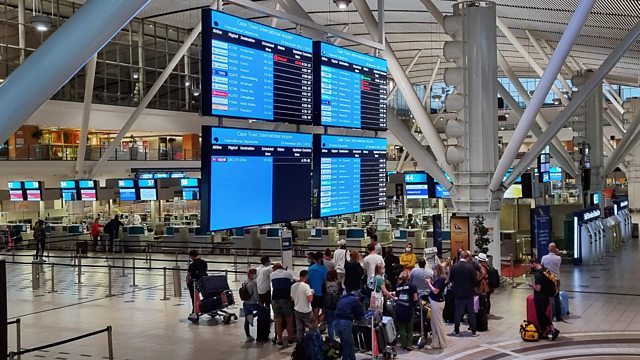The Omicron variant and vaccine inequality
Could a more equitable global vaccine rollout have stopped the new variant?
Could a more equitable global vaccine rollout have stopped the new variant? As the world waits for more information about just how contagious and dangerous the new Covid-19 variant is, we ask if the emergence of a variant like Omicron could have been avoided – or at least slowed - if people all around the world had been vaccinated at the same pace. Instead, richer countries race to give booster vaccines to their own populations as many poorer countries are still waiting to receive their first jabs.
Tamasin Ford hears from Dr. Richard Mihigo, who coordinates the WHO’s immunisation and vaccine development progamme in Africa. He says it’s not just about shipping jabs to countries; the international community could also step up to help with planning and logistics for the distribution of vaccines. Dr. Atiya Mosam, a public health specialist in South Africa, was disappointed in the way the world reacted when news the new variant came out of her country. She argues that the travel bans that many countries quickly imposed are both discriminatory and ineffective. She also worries that many South African scientists feel they have been punished for being open and honest with the world about their discovery. Dr Meru Sheel, an epidemiologist at the Australian National University, says the issue of vaccine inequality should have been fixed many months ago. She says the vaccines should evenly distributed because it makes the most sense from a public health perspective, and also because it’s the ethical thing to do.
(Image: Passengers at Cape Town airport in South Africa on 29 November 2021. Source: David Silverman/Getty Images)
Last on
Broadcast
- Fri 3 Dec 2021 08:32GMTΒι¶ΉΤΌΕΔ World Service
Podcast
-
![]()
Business Daily
The daily drama of money and work from the Βι¶ΉΤΌΕΔ.


